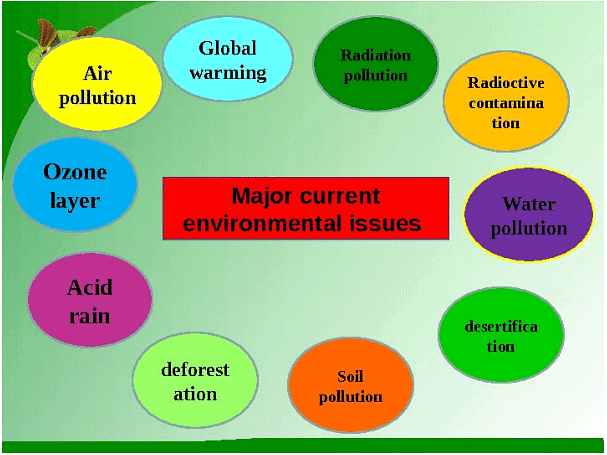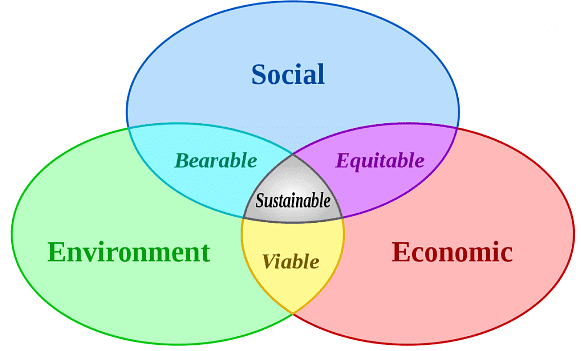UPSC Exam > UPSC Notes > Geography Optional for UPSC > Environmental Issues in Regional Planning
Environmental Issues in Regional Planning | Geography Optional for UPSC PDF Download
Introduction
- Regional planning means a policy framework or a set of decisions or corrective futuristic development goals which can be implemented over specified segments of a country or a region.
- Economic development is oriented towards bringing homogeneity and equilibrium among various regions by distributive justice. Regional planning have developmental goals, thus, planning regions are identified.
- The planning region is an area where the policy applies. They have neither physical boundaries nor cultural. Thus, they are neither naive nor formal nor functional region. They are classified as separate types because of the goals and once the goals have been achieved, they can lose their entity.
- Development and economic growth augment a higher degree of exploitation of resources which introduces a set of environmental issues. Thus planning strategy includes environment as a variable. E.g. Environment Impact Assessment.
- After the Industrial Revolution, environmental dimensions were neglected, due to this many environmental degradation issues in the world are facing today like climate change, pollutions, Plastic waste, etc. It has been proved through experience that environmental dimensions of development can not be ignored. In the long run damage to the environment directly cost economic growth.
- In 1972, with Stockholm Conference, the environment became an important variable in national policies. In India, the Tiwari Committee Report (1980) opened a new chapter in planning strategies of India. Ministry of Environment was opened and EIA, Disaster Management, Hazard Management, etc. were introduced and the environment became an important variable in policymaking.
Regional Development Involves Several Environmental Issues
- Resource development and environment issues: it involves the following issues:
- Classification of resources
(i) Coal (fossil fuels) mining/extraction involves issues such as land scarification, land degradation, landslides, burning of coal leading to fire pollution.
(ii) Forest resource helps in increasing carbon sink, improving of agro-climatic conditions and increase in rainfall. They are adversely affected by overexploitation of forest resources.
(iii) Overexploitation by robber’s approach (maximum exploitation approach) of marine resources leads to marine pollution, ocean dumping, oil seepage, etc, which adversely affects marine ecology.
- Classification of resources
- Agriculture development and environmental issues: There is a need for a plan for the sustainable development of agriculture. For example, Green Revolution led to the degradation of soil in Punjab and Haryana, which led to the call for a Second organic Green Revolution
- Industrialization and environment: It requires planning for the issues arising from industrialization such as air pollution, water pollution, noise pollution, urbanization, deforestation, etc. The proper Environment Impact Assessment is needed to lower its impact.
- Hydrology and environment issues: It involves the issues related to the construction of dams, submergence vegetation, displacement of the local population, etc.
- Urbanization and environment issues: It involves issues like deforestation, Urban Heat Island, pollution, the emergence of slums, etc.
- Population explosion and environment issues: It includes issues such as overexploitation of resources, man-animal conflict, deforestation, etc. thus, there is a need for a holistic population policy.
- Engineering works and construction-related environmental issues: It involves environmental issues arising from projects such as the construction of dams, tunnels, etc. in hilly areas which put pressure on its fragile environment.
The environmental issues involved because of the faulty regional planning in the following field –
- Agriculture: chemical fertilizers, chemical pesticides used
- River project construction of the big dam, diversion of river water,
- Disposal of untreated sewage
- Mining in hilly area and silting of the river
- Deforestation
- Overpopulation
- Wrong City Designing
- Unplanned Migration

Conclusion
- Regional planning is not a panacea to the problems related to development, but it acts as an antidote to the variety of problems that are identified in a characteristic region.
- It helps in decreasing the magnitude of the problem and persists from further anomalies on the developmental graphics.
- Thus, regional planning and strategies are inevitable for development. But the environmental concerns have to be mitigated and sustainable development strategies with a futuristic vision and a concern for posterity (future generation) are required.

The document Environmental Issues in Regional Planning | Geography Optional for UPSC is a part of the UPSC Course Geography Optional for UPSC.
All you need of UPSC at this link: UPSC
|
304 videos|717 docs|259 tests
|
FAQs on Environmental Issues in Regional Planning - Geography Optional for UPSC
| 1. What are the major environmental issues addressed in regional planning? |  |
Ans. Major environmental issues addressed in regional planning include air and water pollution, deforestation, loss of biodiversity, climate change, and improper waste management. These issues are crucial to consider in order to achieve sustainable development and ensure the well-being of both present and future generations.
| 2. How does regional planning address air and water pollution? |  |
Ans. Regional planning addresses air and water pollution through the implementation of strategies such as setting emission standards for industries, promoting the use of clean energy sources, developing efficient waste management systems, and creating green spaces to improve air quality. Additionally, regional planning involves the regulation of industrial activities and the establishment of water treatment facilities to ensure the protection and preservation of water resources.
| 3. What measures can regional planning take to address deforestation? |  |
Ans. Regional planning can take several measures to address deforestation, including the establishment of protected areas and national parks, promoting sustainable logging practices, implementing reforestation programs, and raising awareness about the importance of forest conservation. Through these efforts, regional planning aims to mitigate deforestation, protect wildlife habitats, and maintain the ecological balance of the region.
| 4. How does regional planning contribute to the preservation of biodiversity? |  |
Ans. Regional planning contributes to the preservation of biodiversity by identifying and conserving ecologically important areas, promoting sustainable land use practices, and implementing measures to protect endangered species. It also involves the integration of biodiversity considerations in development projects and the establishment of wildlife corridors to ensure the connectivity of habitats. Through these actions, regional planning aims to safeguard the unique and diverse species that inhabit the region.
| 5. What role does regional planning play in addressing climate change? |  |
Ans. Regional planning plays a crucial role in addressing climate change by promoting sustainable development practices and reducing greenhouse gas emissions. It involves the implementation of measures such as energy-efficient infrastructure, public transportation systems, and renewable energy projects. Regional planning also focuses on enhancing the resilience of communities to climate change impacts, such as sea-level rise and extreme weather events, through the incorporation of adaptation strategies in land use planning and infrastructure development. By considering climate change in regional planning, efforts are made to mitigate its negative effects and build a more sustainable future.
Related Searches
















